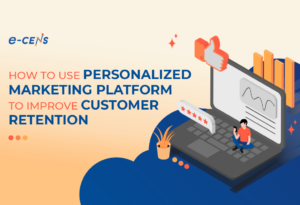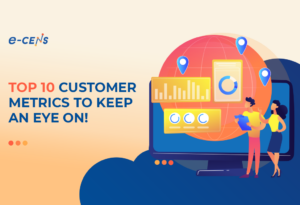Universal Analytics vs. GA4: A reminder
To recap, Universal Analytics was designed to support web analytics. While a workaround (using Firebase) was implemented to combine web page data and app data, this solution was highly technical.
GA4 is designed from the ground up to blend web and app data. Also, GA4 records events rather than the hit-based data collected by Universal Analytics.
5 New Features added on GA4
1 – Simplified Tag Management
In Universal Analytics, marketing teams had to invest significant time to set up code to track user activity in Google Tag Manager. GA4 tracks and measures some onsite and in-app events by default. Important events are automatically recorded, such as scrolling, outbound clicks, video engagement, file downloads, and so on.
Reporting at this level is as simple as identifying which events to record, which makes this code-free solution very efficient.
2 – Better Audience Targeting with Google Ads
With better user stitching, GA4 supports better user targeting. If you set up a single-sale campaign and a user responds to it. Once they’ve made the purchase, you can ensure that they are automatically removed from the campaign list. No more running a blocklist alongside your campaigns. Expect a much more efficient process and reduced Google ads costs.
3 – BigQuery
GA4 pushes users to export data to BigQuery directly.
The Pros:
- BigQuery is an excellent data warehouse solution for your raw event data
- Once the data is in, the marketing team control the data management cycle
(how long do you want to work with the data, when will you call it old and send it to cold storage?) - There are some free usage offerings
The Cons:
- BigQuery represent a new step and, therefore, potentially a new point of failure in your data pipeline
- BigQuery has a learning curve, which may require that marketing teams recruit and collaborate with qualified colleagues
- Once you go beyond the free usage, you have an elastic, usage-based bill. This adds a level of unpredictability to your budget forecasts.
As a data warehouse, BigQuery empowers users to clean, slice, and dice their data to fit their business requirements. It also integrates with dashboards and reporting tools such as Data Studio.
4 – Machine Learning
While marketing teams may have implemented Machine Learning on their Universal Analytics data, GA4’s data model provides a much richer data picture. This will improve Machine Learning predictions and alert Marketing Teams as data trends emerge. Expect this cutting-edge AI technology to revolutionize the prediction of outcomes such as churn rates and customer segment-specific predictions.
Well-informed Machine Learning supports the entire business, for example, by providing better supply chain management. If a prediction is flagged suggesting a surge in demand for a product that you sell, supply teams can be ahead of the game. Marketing teams may receive a forecast for an uplift in revenue from a key segment, allowing them to focus on actions that target that high-value audience.
5 – Reports
The GA4 reporting environment is probably going to be the number 1 learning curve for most marketing teams. There are fewer pre-built reports, and you will not have access to those familiar “views”.
However, once your reporting strategy is established, you can expect a much richer picture of how customers interact with your brand across various channels and devices. Thanks to effective user-id stitching, deduplication is far simpler, resulting in far more accurate reporting and ad targeting.
Public Google Analytics Training with the e-CENS team
As a Google Certified Partner, e-CENS wants everyone to learn how GA4 works and understand its potential in experienced hands. We offer a 2-day Google Analytics training to marketing, analytics, and technology professionals who are just starting out and to those who are ready to perform more advanced operations and analytics mid-career.
Our consultants are here to help you build the right data analytics framework for your needs: contact e-Cens today to learn more.




